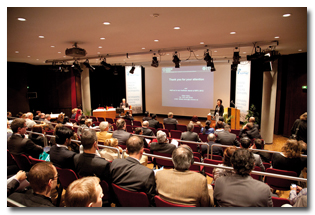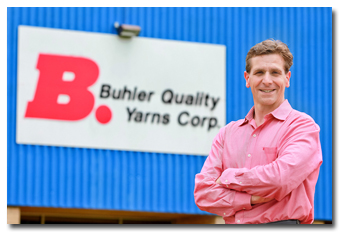Success in foreign markets is today very much dependent on agreements among the participating
countries. For decades, the global economic community was fighting to achieve agreements that are
acceptable for all states. Finally, the World Trade Organization (WTO) succeeded to ratify the
so-called WTO agreement. However, many countries read this treaty in the way they want to read it.
Mostly agricultural but also textile issues are in the forefront of ongoing discussions, which
sometimes end up in a kind of economic war. Of course, every nation is taking care of its own
people. This is also the case for the United States. Another agreement that may be concluded in the
near future is the Trans-Pacific Partnership (TPP) (See sidebar).
Trans-Pacific Partnership
The U.S. is currently negotiating the TPP with ten other countries — Australia, Brunei
Darussalam, Canada, Chile, Malaysia, Mexico, New Zealand, Peru, Singapore and Vietnam; and Japan is
expected to join the group during the next round of negotiations, which will take place July 15-24
in Malaysia. According to the Office of the U.S. Trade Representative, all of them are committed
“to concluding a high-standard, ambitious agreement and to expanding the initial group to include
additional countries throughout the Asia-Pacific region.” However, it seems that for some time,
there have been some clouds over the negotiations.
U.S. Reps. Howard Coble (R-N.C.), Bill Pascrell (D-N.J.) and Mick Mulvaney (R-S.C.); and
textile industry members worry about people’s jobs: They are calling on the Obama administration to
maintain the fair trade negotiations agreed upon by TPP countries, and including the yarn forward
rule of origin under which apparel produced in and exported to countries within the TPP must be
produced using yarns and fabrics produced within the participating countries.
Same Rules For Everybody …
In an op-ed article titled “Free trade must be a two-way street,” published late last month
in the Washington newspaper “The Hill,” Coble, Pascrell and Mulvaney write:
The future of American manufacturing and the millions of jobs it provides depends on
the successful competition of American-made goods in foreign markets. Toward that end, we support
free trade agreements that give participating countries the chance to compete on a level playing
field, where no country has an unfair advantage over another.
Give American workers a fair chance to compete anywhere in the world, and they will
succeed, helping our economy to thrive and create new jobs and opportunities. But a fair chance
means everyone plays by the same rules, rules that make certain the trade agreements we make are
fair as well as free.
Of course, the U.S. textile industry always has played a vital role in the economy of the
country. That’s why the politicians worry in their article:
The American textile and apparel industry has agreed to past trade agreements in
instances when they ensured parties to the agreement could sell their goods and services in each
others’ markets as long as each country abided by the same set of effectively enforced rules. Those
agreements resulted in greater demand for American textile and apparel exports and, consequently,
greater job growth in the industry.
The textile and apparel sector employs more than 500,000 Americans in every part of our
country …. Textile and apparel manufacturing jobs typically pay much higher average wages than in
service and retail industries, and they offer better health and retirement benefits as well. The
industry’s continued growth is vitally important to families in communities where textile mills
operate, as well as to communities where our suppliers and domestic customers are located.
… And Priority For Its Own People
The congressmen put a lot of emphasis on the above-mentioned negotiations. They write:
American jobs should be the first priority for American trade negotiators, just as job
growth in their countries is our trade partners’ first priority. Opening markets to exports
benefits everyone, but we shouldn’t forget that trade agreements are first and foremost
job-creating policies, not foreign assistance programs.
And the message gets tougher:
One country involved in TPP negotiations — Vietnam — is seeking an unfair advantage
over the U.S. and our other trade partners. It could cost the jobs of over 1 million textile and
apparel workers in the U.S. and among our trading partners throughout the Western Hemisphere and
Africa. We call on the Obama administration to insist that the TPP follows the successful practice
of previous free trade agreements, which include a “yarn forward” rule of origin to ensure that
only textile and apparel manufacturers in the countries that are party to a free trade agreement
enjoy the benefits of the agreement.
Yarn Forward Rule Of Origin
It seems that Vietnam is trying to change the rules. The writers continue:
Vietnam wants to replace the “yarn forward” rule with a “flexible rule of origin,”
which requires that only the sewing of a garment must be done in TPP countries. This would allow
Vietnam’s state-owned industry to export apparel duty free to the U.S. and other markets of the TPP
made from yarns and fabric imported from the massive state-owned textile industry in China, which
is not part of the TPP.
The “yarn forward” rule has been an essential component of every free trade agreement
the U.S. has negotiated over the last 25 years, and it has created over $25 billion in two-way
trade with our trade partners. This trade supports nearly 2 million jobs. Replacing it with a
“flexible rule of origin” would more than quadruple Vietnamese exports to the U.S. while driving
American textile and apparel jobs to Asia. Other US Western Hemisphere free trade partners and
African Growth and Opportunity Act partners would be big losers as well.
The conclusion of the three congressmen is clear:
Indefensibly, it would inevitably result in the outsourcing of more than 8,000 textile
and apparel products made today by U.S. workers and U.S. companies for the U.S. military to Chinese
manufacturers. These products amount to more than $2 billion a year in vital equipment for our
fighting men and women.
We cannot support a trade agreement that gives one country and its state-owned and
subsidized industry such an enormous and unfair advantage over privately owned American businesses
and their workers, and gives an undeserved boost to a government-owned industry in a country that
is not even a party to the TPP. The “yarn forward” rule must remain intact with no loopholes in the
TPP.
But That’s Not All
The demand of the textile politicians is not yet finished:
Furthermore, … the U.S. should insist that the TPP include extended tariff phase-outs
for goods produced in TPP countries that heavily subsidize their apparel industry, as is the case
in Vietnam. We should also require the agreement include an electronic customs enforcement system
to prevent countries from cheating.
Not A One-way Street
The conclusion of the article sounds rather patriotic; however, it has a sense of truth:
With these provisions, the textile section of the TPP could be a landmark achievement
for proponents of free and fair trade and an engine of job creation in the U.S. and all TPP
countries. Without them, hundreds of thousands of American workers could lose their livelihoods to
workers in countries that believe free trade is a one-way street. Now, more than ever, America must
demand fair treatment for American made goods and for the rules and benefits of genuinely free and
fair trade.
The next round of the TPP is soon to come.
Textile World
and The Rupp Report will inform readers about the further developments of the negotiations.
Any views and comments on this are more than welcome. Please write to
jrupp@textileworld.com.
Trans-Pacific Partnership
President Obama announced in November 2009 the United States’ intention to participate in
the Trans-Pacific Partnership (TPP) negotiations to conclude an ambitious, next-generation,
Asia-Pacific trade agreement that reflects U.S. economic priorities and values. Through this
agreement, the Obama Administration is seeking to boost U.S. economic growth and support the
creation and retention of high-quality American jobs by increasing exports in a region that
includes some of the world’s most robust economies and that represents more than 40 percent of
global trade.
As a group, the TPP countries are the largest goods and services export market of the United
States. U.S. goods exports to the broader Asia-Pacific totaled $942 billion in 2012, representing
61 percent of total U.S. goods exports. U.S. exports of agricultural products to the region totaled
$106 billion in 2012, representing 75 percent of total U.S. agricultural exports.
Source: United States Trade Representative
July 2, 2013






